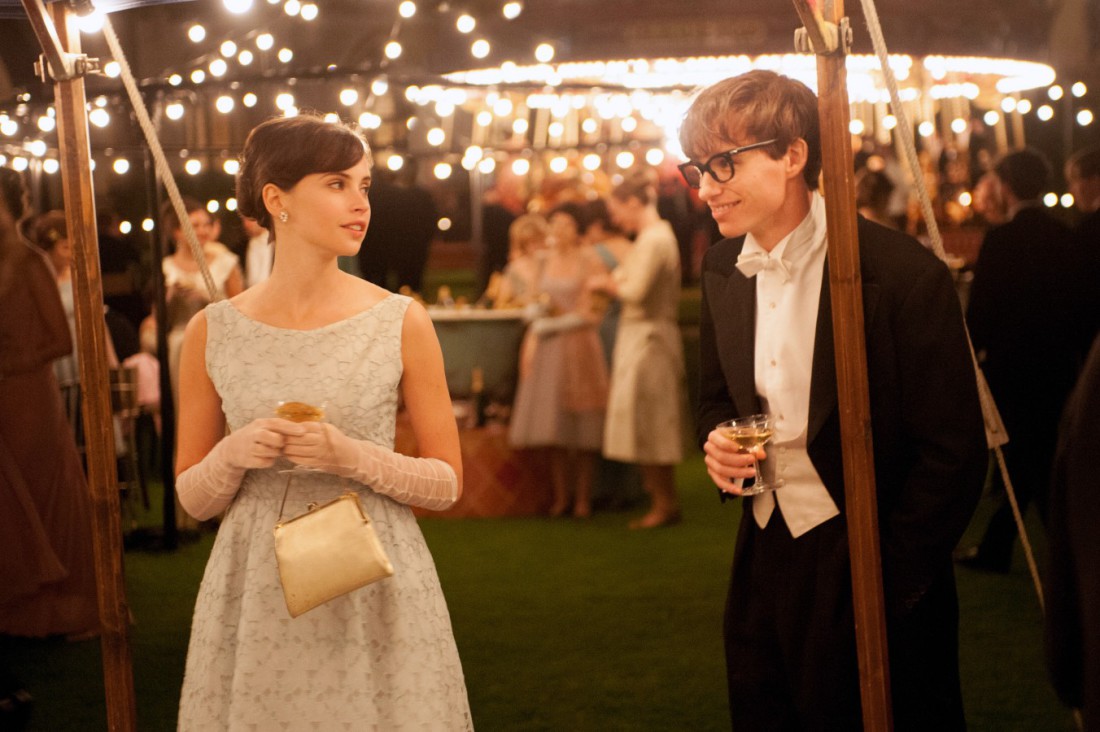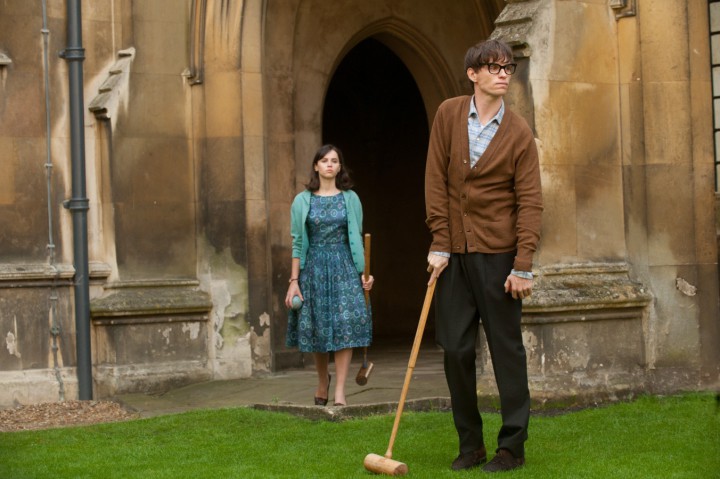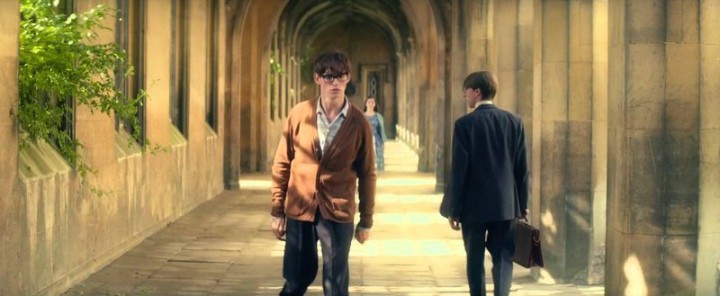The Theory of Everything — which, by the way, doesn’t actually put forth such a theory — is solidly good Brit Oscar Bait. It puts forth a straightforward, largely factual — albeit with the messier bits removed — account of the life of Stephen Hawking (Eddie Redmayne), mostly as seen through the eyes of first wife Jane (Felicity Jones), on whose book, Travelling to Infinity: My Life with Stephen, the screenplay is based. It is nicely crafted in a manner designed to appeal to the broadest possible audience — and I have no reason to doubt that it will appeal to a very broad audience indeed. It has laughs, tears, uplift, tragedy and triumph — all served up in carefully measured portions and handled in the very best taste. It may well snag some of those Oscars it’s angling for. (Eddie Redmayne is certainly a strong contender for Best Actor.) I do not fault it for what it is. In fact, I suspect it is exactly the film it was meant to be, and it is very good at being that. What I do fault it for is that it has taken the life of one of the most extraordinary men of our age and encased it in a very ordinary movie. Oh, it’s a good ordinary movie — making Hawking into an appealing and accessible character — but it’s ordinary all the same. We have an unconventional man with an unconventional life in a movie that could easily have been made by MGM in the 1940s.
I understand the film’s need to keep the science simple for dramatic purposes. Goodness knows, you show me a bunch of mathematical equations on a chalkboard, and my brain shifts into oily neutral sludge, so I don’t have a problem with that. But the film never really gives us even a glimpse of the enormity of his thought process and doesn’t touch on the poetry of his vision. It needed a major stylist at the helm to give us some insight into the workings of Hawking’s mind. Instead it offers us documentarian James Marsh as a director whose notions of stylization don’t go beyond one wobbly fantasy sequence and occasionally printing the film backwards. This is pretty weak for depicting a man whose mind must soar into some pretty spectacular places, even though it’s trapped in a body that can’t. So what do we get? Cream swirling backwards in a mug of coffee and a theory of time that can be depicted in beer foam on a bar. Well, there’s no doubt that the audience will grasp it, but where is the sense of wonder?
The crux of what we get is grounded in the romance of Stephen and Jane — from their “meet cute” to their marriage to battling with Stephen’s neurological disease to the disintegration of their relationship. And all of it is told in the safest possible manner that cannot possibly frighten the horses. By the end of it what do we know? Well, we know that Jane was almost saintly in her patience and devotion — at least for a time. (Bear in mind, the film is working from her book.) We know that Stephen liked Wagner, croquet and rowing — had an eye for the ladies, a great sense of humor and even when paralyzed conveyed emotions with the aid of Groucho Marx eyebrow movements. (This last I suspect is a bit of license.) It’s mostly a thumbnail sketch, but it’s effective as far as it goes. And it’s all played out against picturesque backgrounds that give it a veneer of elegance. (Funny how so much seems to happen with Cambridge’s Bridge of Sighs in the background.)
Don’t misunderstand — I do not dislike the film. It moves well — if sometimes a little brusquely — and is good looking. The performances are excellent. Though Eddie Redmayne inevitably calls to mind Daniel Day-Lewis in My Left Foot (1989), he is utterly believable in the role of Hawking. I’d say he fully inhabits the character. (People have remarked that he looks like Austin Powers, but he really looks more like Freddie Garrity of Freddie and the Dreamers.) It is a good movie — so far as it goes. The problem, for me, is it doesn’t go far enough to ever touch greatness. It doesn’t even have those touches of irreverence and quirkiness that set Tom Hooper’s The King’s Speech (2010) above the basic biopic. The Theory of Everything is, I think, too concerned with being a wholly accessible crowd-pleaser to attempt any such thing. But it is accessible, and I suspect it will be a crowd-pleaser. Rated PG-13 for some thematic elements and suggestive material.








Exactly. Im usually nervous when approaching bio pics, the limited time of a movie usually cant comprehend someones life, especially one as incredible as Hawkings. I agree about the science, I wanted a lot more of it, even if it was just more scnes of Hawkings’ peers discussing theories. Very good movie but not great. Always like to see Christian McKay even in small parts. In some justice filled dimension his Oscar for Me and Orson Welles is sitting on his mantle.